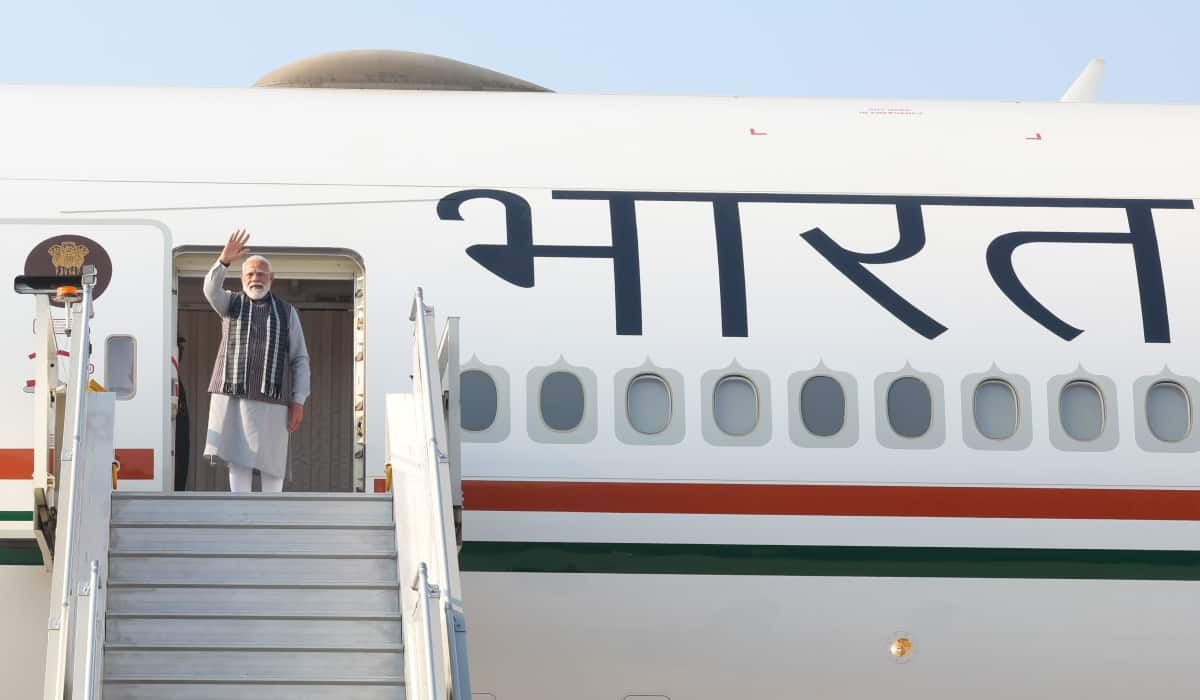The Gujarati version of Hon'ble CM's message is available here.
Shri Narendra Modi appeals all to experience the celestial treat of Transit of Venus on 6th June 2012 (Sunrise to 10:30 am)
Unique and last in the century celestial treat for one and all
The Transit of Venus is among the rarest astronomical phenomena and won't happen again until the year 2117
The unique astronomical event has a lot of potential for science education
While viewing the transit, it is vital that to protect eyes at all times with the proper solar filters
(GUJCOST) has designed and developed a series of activities and outreach materials on Transit of Venus for students, teachers & the community members
6th June 2012 is going to be our date for rendezvous with Venus
This year's grand celebration is on 6th June 2012, the Transit of Venus! The Transit of Venus is among the rarest astronomical phenomena and won't happen again until the year 2117. Only seven have occurred since the invention of the telescope in 1608. So prepare now, and don't miss out on this extremely special event!
Like solar and lunar eclipses, sometimes, the inner planets come in between our Sun and Earth by the way of their orbiting. This is called as transit of planets. As seen from Earth, only transits of Mercury and Venus are possible. Venus transits occur in two pairs every 243 years (121.5 + 8 + 105.5 +8 = 243).
A transit is a great opportunity for the public concurrently to study the sun, which influences life on earth on both a planetary and a personal scale.
Scientific Significance:
Venus Transit has continued to yield fascinating new information for scientists and the public. The unique astronomical event has a lot of potential for science education, from elementary to college level. Various educational projects are being initiated that will increase students’ understanding of the solar system and the historical development of scientific knowledge, as well as open up their horizons to today’s scientific frontiers.
Venus Transit in history
Only six transits of Venus are known to have been observed (though claims are made for earlier observations by Persian astronomers) with the last, in 2004, watched by millions who used telescopes to project images of the Sun's disc and the dot of Venus on to cards or electronic monitors. After this year's, the next will be in 2117 and then 2125.
The first transit of Venus was predicted by Johannes Kepler who calculated one would occur in 1631. However, this was not visible from Europe.
Venus, for all its glittering beauty in the night sky and its association with the Roman goddess of love, is a deeply unpleasant world. It has a surface temperature of 460C, its dense atmosphere of carbon dioxide has incinerated or crushed all robot spacecraft that have landed on it and its surface is shrouded by thick clouds of sulphuric acid. Once thought to be a sister world to Earth, because of their similar sizes and orbits round the Sun, Venus is more like a vision of hell.
Safe viewing Venus Transit
The transit of Venus is a rare and striking phenomenon one won't want to miss — but care must be taken to follow safety procedures. One can experience the transit of Venus safely, but it is vital that to protect eyes at all times with the proper solar filters. No matter what recommended technique you may use, do not stare continuously at the Sun. Take breaks and give your eyes a rest! Do not use sunglasses: they don't offer your eyes sufficient protection.
State-wide campaign
In order to popularize the astronomy and this unique celestial event across the state, Gujarat Council on Science & Technology (GUJCOST) has designed and developed a series of activities and outreach materials on Transit of Venus for the students, teachers and the community members. This include a unique activity kit with 25 hands-on activities to be conducted during the transit time, a booklet, and informative film depicting the significance of the transit of Venus with its genesis and safe observation practices have been developed in Gujarati language for the mass awareness and further dissemination. State level training workshops has been organized to train local resource persons to guide the students and common public for safe viewing of Venus Transit. GUJCOST through its Community Science Centers and Science Club networks is coordinating a variety of outreach programmes for Venus Transit.
Gujarat Science City in association with Vigyan Prasar has also prepared an activity kit for a country-wide campaign through thousands of science club as well as common people. About 15,000 activity kits and 1000 modular telescope have been fabricated and distributed across the country through VIPNET Science Clubs and State S&T Councils.
6th June 2012 is going to be our date for rendezvous with Venus. The next transit would take place only after a long gap of 105.5 years. This transit is special because it is the last time in our lifetimes that we will have an opportunity to collect data for a planet as well characterized as Venus. This event would offer science communicators a great opportunity to popularize astronomy, and address unscientific beliefs and superstitions associated with celestial events. We do hope you would be a part of this great celestial event!
(Details as given by Dr. Narottam Sahoo, Sr. Scientist, Gujarat Science City & Advisor, GUJCOST, Dept of Science & Technology, Govt of Gujarat)















